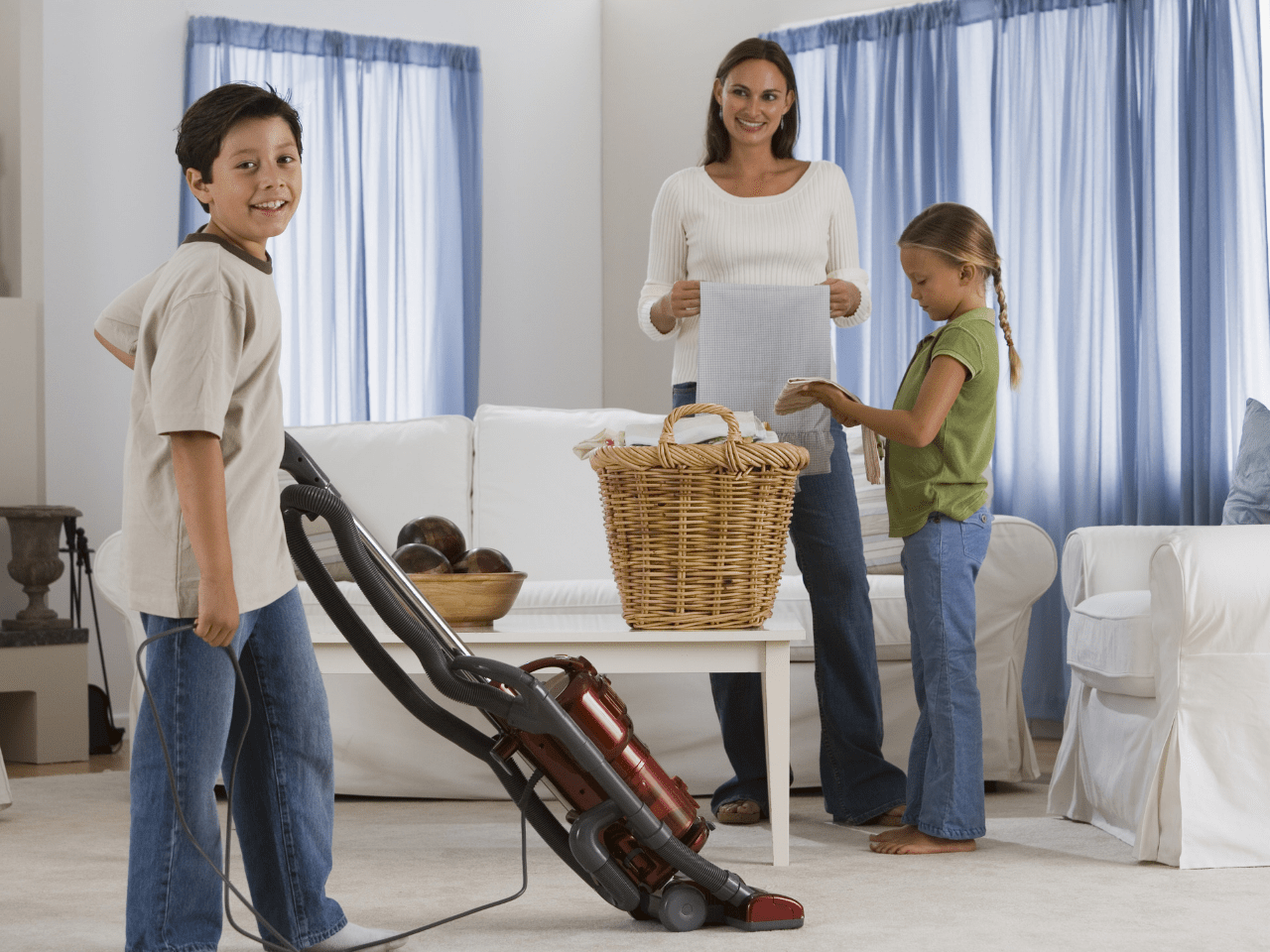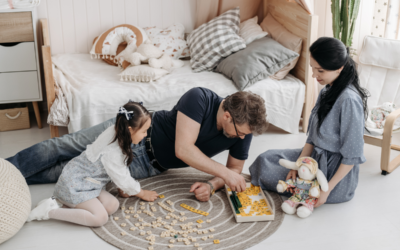This question can be a difficult one to ask yourself as a parent, especially when you have a very cute toddler who knows how to wrap you around their very tiny pinkie. Also, many parents know that teaching a young child chores often leads to more work for the parents then if you had just done the job yourself.

It is important for children to contribute to family life and many families will use ‘chores’ or ‘house jobs’ to help teach children vital lessons and also to take the load off the parents down the track when children are older. Even though it can be frustrating (especially if the folded laundry is less folded after the child has folded it then when it came out of the wash), there are a range of benefits that come from getting children to do chores at a young age:
- Children learn how to care for themselves; dress themselves, keep their environment clean, etc.
- They learn the skill of teamwork, being part of a family and pulling their weight.
- They learn to take pride in their work and the things they have done.
- It reduces family stress down the track when children are older and can contribute.
- It helps children to feel needed. Parenting Author Jim Fay speaks a lot about how chores fulfill a psychological need of children to feel wanted and needed.
- Chores build a work ethic in children that will benefit them when they enter the working world. Remember the famous quote; “fish for me and feed me for a day, teach me to fish and you feed me for a lifetime”
There are a range of other benefits, but these are some things for you to remember when you start to feel the parenting guilt of wanting to do everything for your children. This is really common and one of the hardest hurdles to overcome as a parent when deciding on when to start chores for your child.
You may be surprised to hear that you can start chores as early as age two. This doesn’t look like making a two year old do the dishes! But it can look like having them follow you around while you do the chores. Children just love to spend time with their parents, so even doing chores for them can still be fun. You can sing songs, turn it into a game, play follow the leader while you are doing the chores. This all helps the child to start to engage with the activity.

Once the children are a few years older you can start getting them to help you on the chores. These type of chores help them with refining their fine motor skills or using up energy if they are a more active child. Some ideas of how you could put this into practice could be; getting them to sort the laundry clothes by colour (have them say the colours while they do it), putting the lids back on containers, following you around the dining table putting the forks down as you lay down the knives. It is very important that in this stage you are constantly using positive reinforcement and lots of praise as they learn the chores.
As your child moves up over the next years and is starting school full time, it is important that they are holding some responsibility at home as this will help them at school. This is where you could utilise one of the different chore tracking games to help engage your child on doing chores on their own. Some chore tracking games you could try include; chore cards for screen time (this is where the child chooses a card out of the jar which has a chore on it and a number of minutes of screen time they can cash in once they have completed the chore), chore sticks (write the chores out on paddle sticks and when it is time to do chores they choose a stick out, children get different number of sticks for their age), chore sticker charts, rotating fridge magnet chores and more!

Overall it is important to note that when starting chores with your child you will have to relinquish control of having the perfect house. When children are doing chores, they are not going to ever do them to your standard so you have to take a breath and let go.
Also please know that these are just guidelines and not rules. Every child is different and you as the parent will know what they right times is to progress your child with their chores.
We have dropped this little guide here to sum up the age breakdowns for you to easily remember.
Age 1 & 2 = Follows You
Age 3 & 4 = Helps You
Age 5 & 6 = Chore & Reward
What do you think about when children should start doing chores? We would love to hear your thoughts below.
When did your children start doing chores?
What other chore tracking games worked for you?
Please share with us in the comments below.





